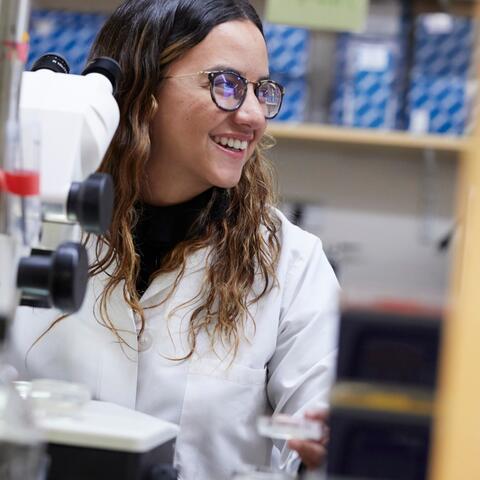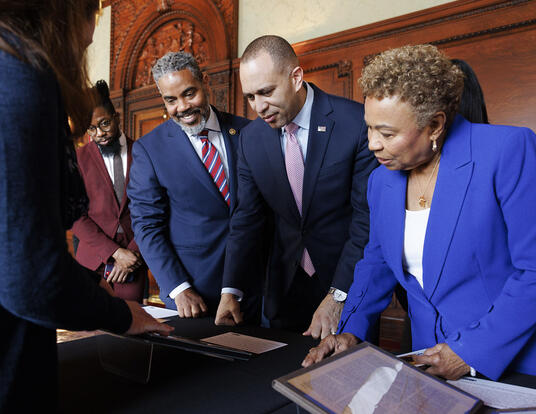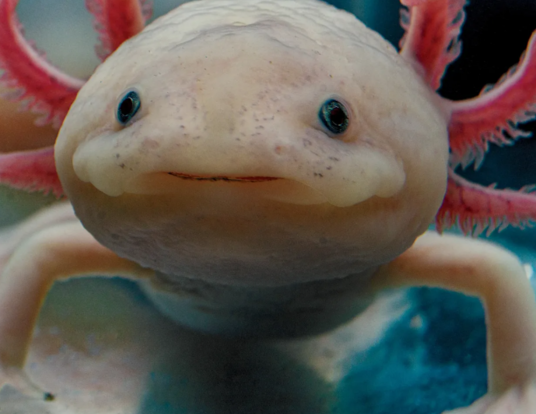History, in Real Time
Harvard Griffin GSAS Voices: Edward (Ted) L. Widmer, PhD ’93
Ted Widmer is a professor at the City University of New York (CUNY), where he teaches American history and political science. He talks about his time as a writer for President Bill Clinton, how he prepares his students to participate in democracy, and how he learned to be a teacher at the Harvard Kenneth C. Griffin Graduate School of Arts and Sciences (Harvard Griffin GSAS).
Serving at the Pleasure of the President
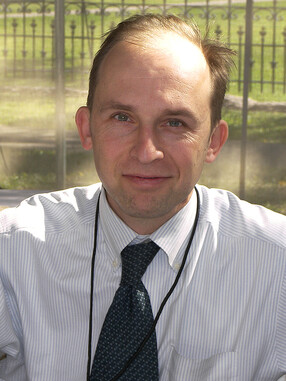
I am a historian of the United States. For the most part, I have studied the executive branch. I have had the tremendous opportunity not only to write about historical figures like Abraham Lincoln but also to work with living presidents like Bill Clinton.
At a wedding in the mid-1990s, I happened to meet a speechwriter who worked for President Clinton. He believed that the White House speechwriting team needed someone with some heft as a historian, and he urged me to apply for a position there. I did, with great excitement. Harvard was helpful in that process because one of the assignments was to write a speech about the difficult history of US relations with Guatemala. What better place to investigate a topic like that than the bowels of Widener Library?
I started as a speechwriter in 1997 and stayed until the end of the Clinton presidency. I learned so much more from the staff there than I think they learned from me. At Harvard, it was fine to be digressive; it was the opposite in the White House. I learned to write quickly, on deadline, and be topical in every sentence and paragraph.
When President Clinton left office, he invited me to help him with his memoir, My Life. It was my job to interview and try to help him remember all of the details of a very busy life. As a historian, that kind of participatory experience is rare, and it is one I will remember forever.
Turning Students into Citizens
I’m a professor at the Macaulay Honors College of the City University of New York. In recent years, I’ve taught about the elections of 2020 and 2022 as a way to get students to engage with our democracy. I try to lead class in a nonpartisan way so that students can focus on what’s happening in the world around them. We study the media, candidate speeches, and policy statements so that the students can prepare for big elections—and their contested aftermath.
One of the positives of being a teacher is that I get to hear what’s on the minds of young people. The idea that students are somehow apathetic about politics couldn’t be farther from the truth. They care deeply about the country they live in and the big political choices facing them in the years ahead. I try to embrace that conversation, staying conscious of my responsibility as a teacher to referee it as well. My job is to enable students to think for themselves and help them develop and articulate those thoughts through coursework. It’s work that’s valuable not only for class but also for our democracy.
Beyond the classroom, I work hard to help students find opportunities after graduation. Inside the CUNY system, there are so many extraordinary, brilliant students, but they sometimes lack the social connections of, say, Harvard students. They largely come from recent immigrant families, and in many cases, their parents braved extraordinary challenges to come to America. So, I try to do a little more to see that they get placed in internships, graduate schools, and jobs after graduation. It’s an immensely rewarding part of my job.
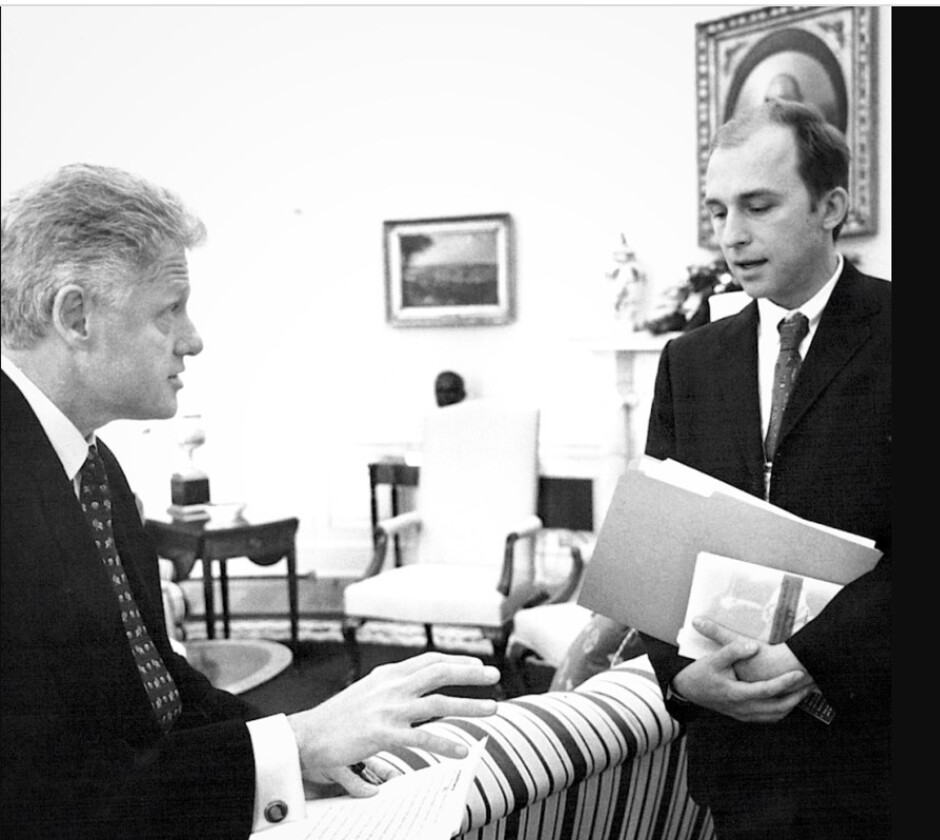
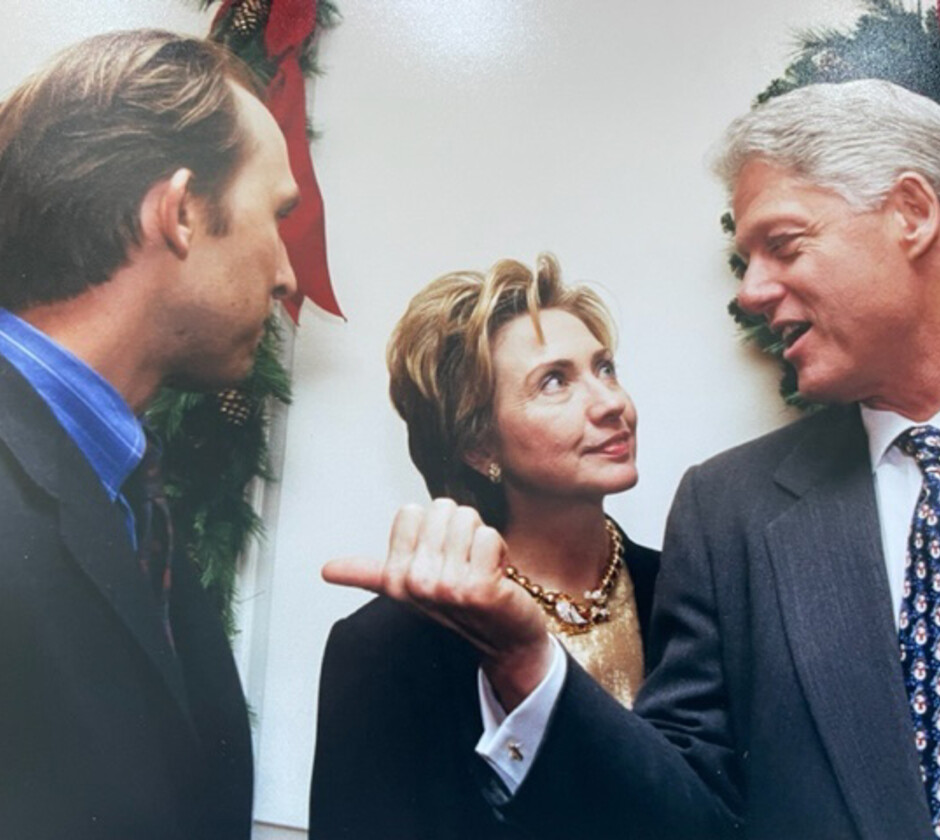
From Tutor to Teacher
I studied history and literature as an undergraduate at Harvard. When I returned for graduate school, I became a tutor in the department. At the time, I wanted to read everything, not just history and literature. Fortunately, the department encouraged that kind of voracious intellectual curiosity.
Working as a tutor gave me a lot of time to figure out how to be a teacher, which is perhaps my greatest debt to Harvard Griffin GSAS. As a graduate student, I changed my area of specialization many times. I’m not sure if Harvard ever even noticed. Being a tutor helped me to learn to be as patient with undergraduates as Harvard was with me.
Tutoring also prepared me for teaching much more than any of my graduate school classes. I had this fear of coming to tutorials and appearing underprepared in front of undergraduates. I learned so much from my students that I wished our weekly meetings would never end. I still think about my students today and remember the wonderful conversations we had thirty years ago.
Get the Latest Updates
Join Our Newsletter
Subscribe to Colloquy Podcast
Simplecast


